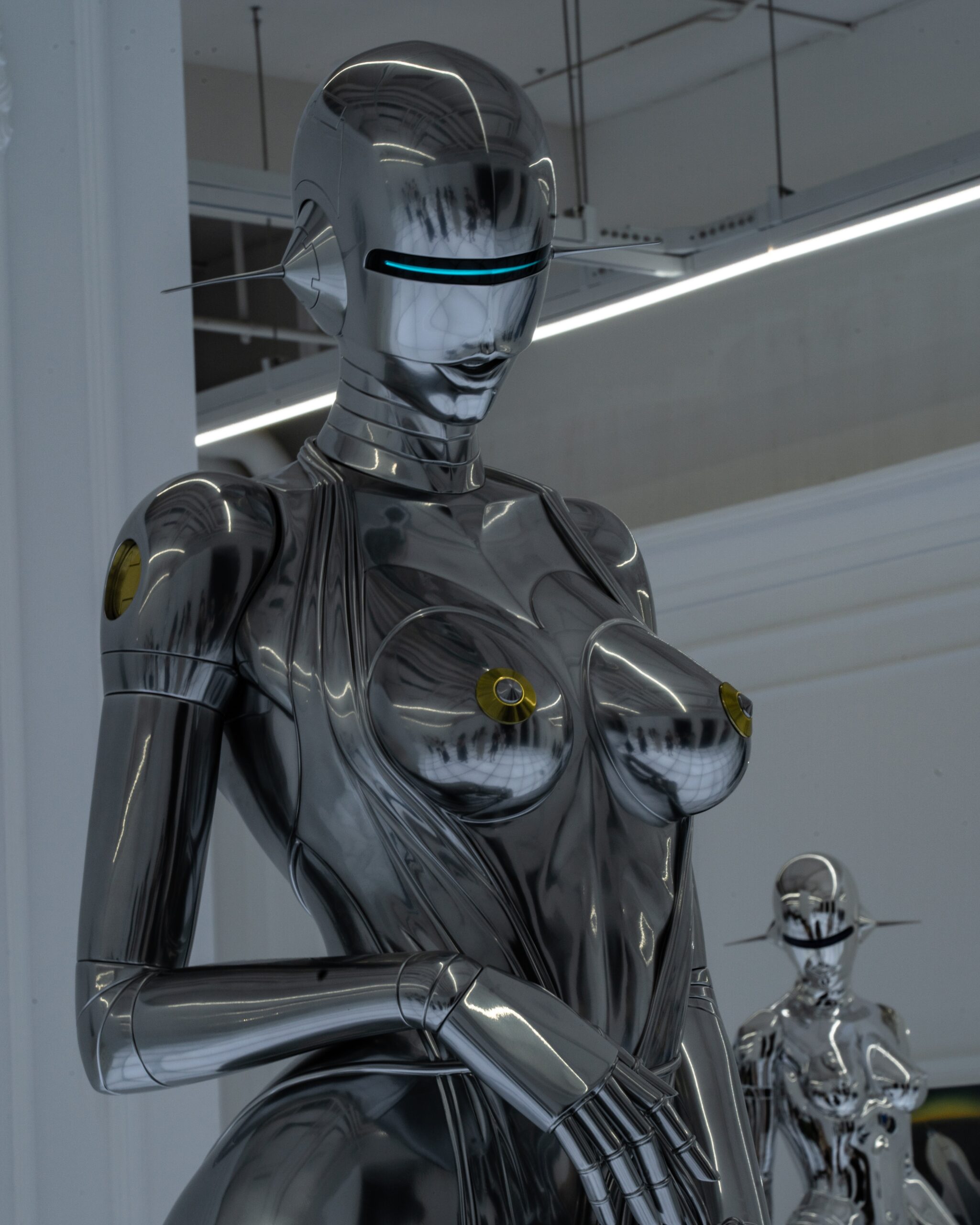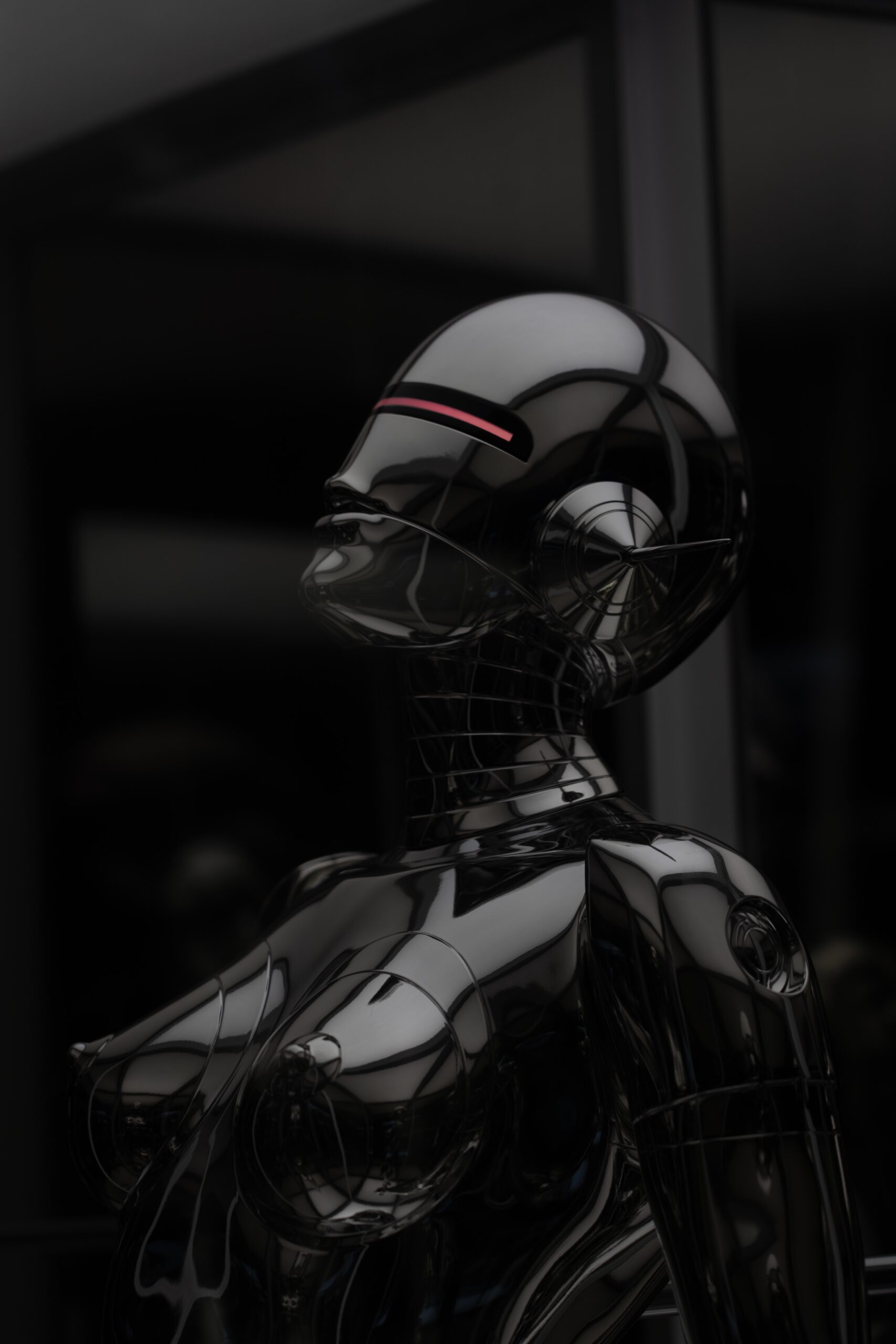What’s The Impact Of Artificial Intelligence On Content Creation?
Artificial intelligence (AI) has rapidly transformed various industries, and content creation is no exception. By leveraging machine learning algorithms and natural language processing, AI technology has revolutionized how content is generated, curated, and personalized. From automated writing assistants to intelligent content management systems, AI has streamlined the process of creating engaging and relevant content. This article explores the profound impact of AI on content creation, shedding light on its benefits, challenges, and the potential it holds for the future. Step into the world of AI-powered content creation and discover how this technology is shaping the way we communicate and consume information.
Automation of Content Creation
Technology is shaping the future of content creation, and one area where its impact is strongly felt is in automation. With the help of artificial intelligence (AI) algorithms, various aspects of content creation can now be automated, including writing, video production, graphic design, and audio creation. This has revolutionized the way content is created, making it more efficient, accurate, and scalable than ever before. Let’s explore each of these areas and how automation is driving change.
Automated Writing
Gone are the days when content creators had to spend hours crafting each word and sentence. AI-powered automated writing tools are now capable of generating high-quality written content at lightning-fast speeds. These algorithms use natural language processing techniques to understand the context and generate coherent and engaging content. By automating the writing process, content creators can save time and focus on higher-level tasks, such as strategy and creativity.
Automated Video Production
Creating compelling video content is no longer limited to professional videographers. AI-driven video production tools can automate various tasks involved in video creation, such as editing, scene selection, and even scriptwriting. These tools leverage computer vision and deep learning algorithms to analyze raw footage, identify key moments, and produce professionally edited videos. With automated video production, content creators can now produce visually stunning videos in a fraction of the time it would traditionally take.
Automated Graphic Design
Designing visually appealing graphics is crucial for capturing audience attention. AI-powered graphic design tools can now automate the process of creating stunning visuals. These tools utilize machine learning techniques to analyze design trends, understand user preferences, and generate aesthetically pleasing designs. Whether it’s creating logos, social media posts, or infographics, automated graphic design tools enable content creators to produce professional-quality visuals without the need for extensive design knowledge or skills.
Automated Audio Creation
Audio plays a vital role in content creation, whether it’s podcasts, voice-overs, or background music. AI algorithms can now generate audio content that sounds remarkably human-like using techniques such as text-to-speech synthesis and music composition. Content creators can save time and effort by automating audio production, making it easier to add high-quality audio elements to their content. Automated audio creation tools are a game-changer, allowing creators to enhance the auditory experience of their audience.
Improved Efficiency and Productivity
Automation in content creation not only streamlines the workflow but also significantly improves efficiency and productivity. Here are some key ways that AI-driven automation boosts productivity and helps content creators generate more output.
Faster Content Generation
By automating various tasks involved in content creation, such as writing, video production, graphic design, and audio creation, AI significantly speeds up the process. What once took hours or even days can now be accomplished in a matter of minutes or seconds. This increased speed allows content creators to produce more content within the same timeframe, effectively maximizing their output and reaching a wider audience.
Minimizing Human Error
Humans are prone to errors, and even the most meticulous content creators can overlook typos or inconsistencies in their work. AI-powered automation minimizes the risk of human error by ensuring grammatical accuracy, detecting factual inaccuracies, and flagging potential issues. By reducing the likelihood of errors, content creators can maintain a high quality of work and build trust with their audience.
Streamlined Workflow
Content creation involves various tasks, from idea generation to publication. AI-driven automation streamlines this workflow by automating repetitive and time-consuming tasks, such as ideation, content research, and formatting. By freeing up time and mental energy, content creators can focus on the creative aspects of their work, resulting in higher quality and more engaging content.

Increased Output
Automation enables content creators to produce more content in less time, leading to increased output. Whether it’s writing articles, producing videos, or designing visuals, AI-powered tools can handle the repetitive tasks, allowing content creators to focus on generating ideas and creating unique and impactful content. This increased output not only helps content creators meet the demands of their audience but also allows them to experiment with new content formats and approaches.
Enhanced Audience Engagement
AI-powered automation not only improves efficiency but also enhances audience engagement by delivering personalized content recommendations, optimizing social media strategies, enabling emotion detection and response, and facilitating dynamic content adaptation.
Personalized Content Recommendations
AI algorithms excel at understanding user preferences and behavior. By analyzing user data, such as browsing history, search queries, and interaction patterns, AI-powered systems can recommend personalized content to individual users. This level of personalization enhances the user experience, increases engagement, and helps content creators deliver relevant and valuable content to their audience.
Optimized Social Media Strategies
Social media platforms have become a powerful tool for content distribution and audience engagement. AI algorithms can analyze social media data to identify trends, optimize posting schedules, and suggest content types that resonate with the target audience. By leveraging AI-driven analytics, content creators can make data-informed decisions and develop effective social media strategies that maximize engagement and reach.
Emotion Detection and Response
Understanding and evoking emotions are key aspects of effective content creation. AI algorithms can analyze user behavior, such as facial expressions or textual sentiment, to detect emotions and tailor content accordingly. By recognizing emotional cues, content creators can create more engaging and impactful content that resonates with their audience on a deeper level.
Dynamic Content Adaptation
Content consumption happens across various devices and platforms, each with its unique requirements and constraints. AI-powered automation allows content to be dynamically adapted to different formats and contexts. Whether it’s adapting videos for different screen sizes, redesigning web pages for mobile devices, or generating alternative versions of the same content, dynamic content adaptation ensures seamless user experiences and maximizes audience engagement.
Content Quality and Accuracy
While automation improves efficiency and productivity, ensuring content quality and accuracy remains paramount. AI-driven tools address this concern by providing improved grammatical accuracy, fact-checking and plagiarism detection, natural language generation, and consistency in style and tone.
Improved Grammatical Accuracy
AI algorithms can analyze and correct grammatical errors, ensuring that the content reads smoothly and professionally. By leveraging natural language processing techniques, these tools can identify and correct grammar, spelling, and punctuation mistakes, enhancing the overall quality of the content.
Fact-Checking and Plagiarism Detection
In an era of fake news and information overload, fact-checking is crucial. AI-powered tools can analyze content, cross-reference it with credible sources, and detect factual inaccuracies. Additionally, these tools can also identify instances of plagiarism, ensuring that content creators produce original and reliable work.

Natural Language Generation
AI algorithms are becoming increasingly capable of generating human-like text. Natural language generation techniques allow AI to generate coherent and readable content that caters to specific requirements and target audiences. Content creators can use these tools to create drafts, generate ideas, or even automate the production of certain types of content.
Consistency in Style and Tone
Maintaining consistency in style and tone across different pieces of content is essential for brand identity and user experience. AI-powered tools can analyze existing content and generate guidelines for style, tone, and voice. This ensures consistency and coherence across various content pieces, even when multiple content creators are involved.
Data-driven Insights and Analytics
One of the most significant advantages of AI-powered automation is the generation of data-driven insights and analytics. By leveraging the power of AI, content creators can gain valuable insights into predictive content analytics, audience behavior analysis, content performance metrics, and real-time content optimization.
Predictive Content Analytics
AI algorithms can analyze vast amounts of data and make predictions about content performance and audience engagement. By considering factors such as historical data, user behavior, and market trends, AI-driven predictive analytics can help content creators make informed decisions on topics, formats, and distribution channels, ultimately maximizing the impact of their content.
Audience Behavior Analysis
Understanding audience behavior is crucial for content creators to tailor their content to the needs and preferences of their target audience. AI algorithms analyze user data, such as browsing patterns, content consumption habits, and social media interactions, to gain insights into audience behavior. These insights help content creators create content that aligns with their audience’s interests and maximizes engagement.
Content Performance Metrics
Measuring the impact of content is essential for content creators to refine their strategies and optimize their efforts. AI-powered analytics tools provide content performance metrics, such as views, likes, shares, and conversions, allowing creators to understand how their content is performing and make data-informed decisions to improve future content.
Real-time Content Optimization
AI algorithms can analyze content performance in real-time and make recommendations for optimization. By continuously monitoring user engagement, feedback, and performance metrics, AI-driven tools can suggest improvements, such as changing headlines, adjusting video length, or experimenting with different content formats. Real-time content optimization allows content creators to adapt and improve their content on the fly, increasing its impact and relevance.
Ethical Considerations and Bias
As AI becomes more prevalent in content creation, ethical considerations and bias become significant concerns. It is crucial to address these challenges to ensure the responsible and fair use of AI in content creation. Key considerations include addressing bias in AI-generated content, promoting the ethical use of AI, ensuring transparency and accountability, and establishing regulations and guidelines.
Bias in AI-generated Content
AI algorithms, like any tool, can reflect the biases present in the data they are trained on. Content creators must be aware of this potential bias and take steps to mitigate it. By diversifying training data, incorporating diverse perspectives, and actively monitoring the output of AI-generated content, creators can ensure fairness and inclusivity in their content.

Ethical Use of AI in Content Creation
The ethical use of AI in content creation involves being mindful of the impact and implications of AI tools and algorithms. Content creators should ensure that AI-generated content respects privacy, complies with copyright and intellectual property rights, and does not manipulate or deceive the audience. By adhering to ethical guidelines, content creators can build trust, maintain integrity, and prioritize the well-being of their audience.
Transparency and Accountability
Transparency and accountability are essential when using AI algorithms in content creation. Content creators should disclose the use of AI tools or automation in their content, providing clarity to the audience about the role of AI. Additionally, content creators should take responsibility for the output of AI algorithms, ensuring that the content aligns with their values and meets the required standards.
Regulation and Guidelines
Given the potential for misuse or unintended consequences, establishing regulations and guidelines for AI in content creation is crucial. Governments, organizations, and industry bodies should collaborate to develop frameworks that address ethical concerns, safeguard user rights, and promote responsible and beneficial use of AI. Clear regulations and guidelines will help protect the interests of both content creators and their audience.
Human-AI Collaboration
While the automation of content creation brings numerous benefits, it is essential to recognize the value of human creativity and judgment. Human-AI collaboration can harness the strengths of both, resulting in more powerful content creation. This collaboration can augment human creativity, use AI as a content assistant, combine human judgment and AI analysis, and foster creative AI partnerships.
Augmenting Human Creativity
AI can significantly augment human creativity by automating repetitive and time-consuming tasks, freeing up time and mental energy for content creators to focus on ideation and innovation. By leveraging AI-powered automation, content creators can explore new creative horizons, experiment with unconventional ideas, and push the boundaries of content creation.
AI as a Content Assistant
AI algorithms can serve as valuable content assistants, providing recommendations, suggestions, and insights to enhance the creative process. These algorithms can analyze data, identify trends, and offer suggestions for content topics, formats, and approaches. By leveraging the assistance of AI, content creators can make more informed decisions and create content that resonates with their audience.
Combining Human Judgment and AI Analysis
Human judgment and AI analysis are complementary forces in content creation. While AI algorithms can process vast amounts of data and provide insights, it is the human judgment that brings creativity, intuition, and empathy to the table. By combining the analytical power of AI with the human touch, content creators can create content that is both data-driven and emotionally resonant.
Creative AI Partnerships
Collaboration between humans and AI has the potential to unlock entirely new realms of creativity and innovation. Creative AI partnerships, where AI algorithms and content creators work hand in hand, can lead to the development of groundbreaking content formats, experimentation with novel techniques, and the discovery of new artistic possibilities. By embracing these partnerships, content creators can push the boundaries of content creation and create truly unique and memorable experiences.
Challenges and Limitations
While AI-powered automation holds immense potential, there are several challenges and limitations that content creators and technology developers need to address. These challenges include the limitations of current AI capabilities, the creative element and authenticity, content adaptation to contextual nuances, and ethical and legal concerns.
Limitations of Current AI Capabilities
Despite significant advancements, current AI capabilities still have limitations. AI algorithms may struggle with complex creative tasks that require contextual understanding, such as producing highly nuanced writing or designing original and inventive visuals. Additionally, algorithms can be sensitive to input quality and require substantial amounts of training data to perform optimally. Content creators must be aware of these limitations and use AI automation judiciously.
Creative Element and Authenticity
Injecting creativity and authenticity into content remains a challenge for AI. Although AI algorithms can generate content that appears human-like, it may lack the depth, emotion, and originality that human creators bring. Content creators should strive to infuse their content with their unique voice, perspective, and creativity, ensuring that it stands out from algorithm-generated content and resonates with the audience on a personal level.
Content Adaptation to Contextual Nuances
AI algorithms often struggle to understand and adapt to contextual nuances, which can impact content quality. For example, generating content that is culturally sensitive or understands regional dialects can be challenging for AI-driven automation. Content creators must carefully review and manually adjust AI-generated content to ensure that it aligns with the specific context, avoiding potential misunderstandings or misrepresentation.
Ethical and Legal Concerns
The rise of AI in content creation raises ethical and legal concerns that must be addressed. Issues such as data privacy, consent, ownership, bias, and accountability require careful consideration. Content creators must be mindful of these concerns and ensure that their use of AI is aligned with ethical standards, legal requirements, and the best interests of their audience.
Future Possibilities and Innovations
As technology continues to evolve, the future of AI in content creation holds exciting possibilities and innovative approaches. Some future avenues include AI-driven personalized content experiences, virtual reality and immersive content, exploring new content formats, and AI-generated advertisements.
AI-driven Personalized Content Experiences
AI algorithms have the potential to deliver highly personalized content experiences tailored to individual users. By analyzing user data, preferences, and behavior, AI can recommend content, adapt formats, and even generate content specifically designed to resonate with each user. Personalized content experiences enhance audience engagement, improve relevance, and foster stronger connections between content creators and their audience.
Virtual Reality and Immersive Content
Virtual reality (VR) and augmented reality (AR) technologies offer new dimensions for content creation. AI algorithms can play a pivotal role in creating immersive and interactive VR/AR content, enhancing storytelling, and enriching the user experience. By combining AI with VR/AR, content creators can transport their audience to virtual worlds, enable interactive narratives, and revolutionize the way content is consumed and experienced.
Exploring New Content Formats
AI-powered automation opens doors to exploring new and unconventional content formats. Content creators can experiment with generative art, interactive narratives, dynamic visualizations, and other innovative formats. AI algorithms can generate content in real-time or respond dynamically to user input, creating unique and engaging content experiences that captivate audiences in ways not previously possible.
AI-generated Advertisements
Advertising is an integral part of content creation, and AI-powered automation can revolutionize the way ads are created and targeted. AI algorithms can analyze user data, preferences, and behavior to generate highly targeted and personalized advertisements. By delivering ads that are relevant and engaging, content creators can maximize their advertising impact and drive higher conversion rates.
Conclusion
The impact of artificial intelligence on content creation is undeniable. Automation enables faster content generation, minimizes human error, and increases productivity. AI-powered tools enhance audience engagement through personalized content recommendations, optimized social media strategies, emotion detection, and dynamic content adaptation. Content quality and accuracy are improved through improved grammatical accuracy, fact-checking algorithms, natural language generation, and consistency of style and tone. Data-driven insights and analytics provide valuable predictive analytics, audience behavior analysis, content performance metrics, and real-time content optimization. Ethical considerations and bias need to be addressed, promoting transparency, accountability, and responsible use of AI. Human-AI collaboration unlocks both creativity and efficiency, ensuring content creation remains authentic and resonant. Although challenges and limitations exist, future possibilities and innovations continue to expand the horizons of AI-driven content creation. The future holds exciting prospects with personalized content experiences, virtual reality, new content formats, and innovative AI-generated advertisements. As technology advances, content creators have an opportunity to harness the power of AI to create exceptional content that captivates and engages audiences around the world.




